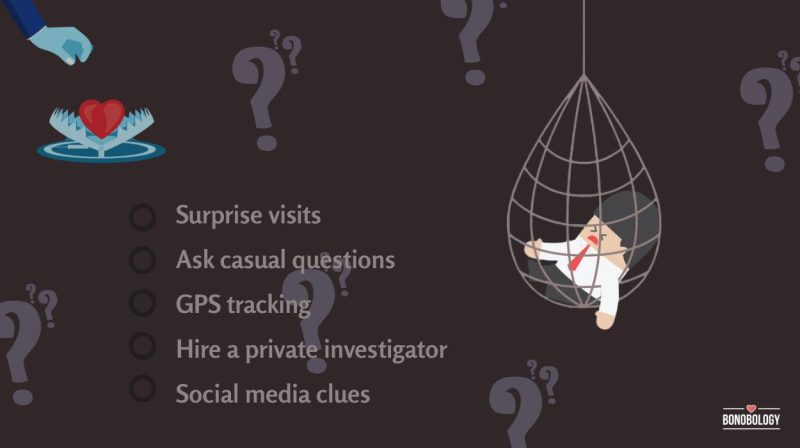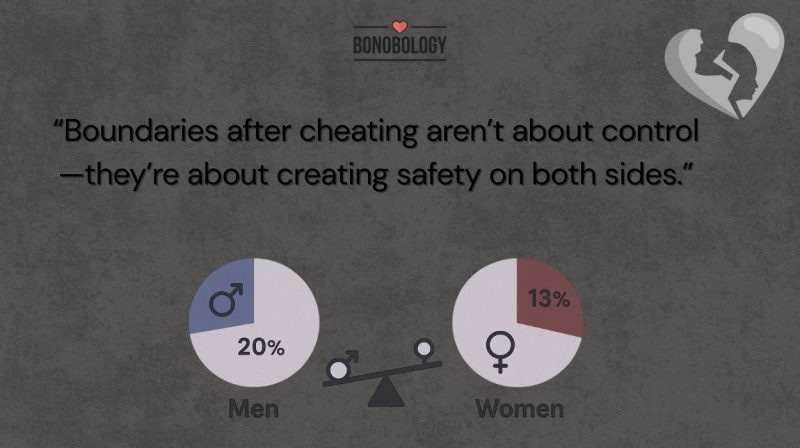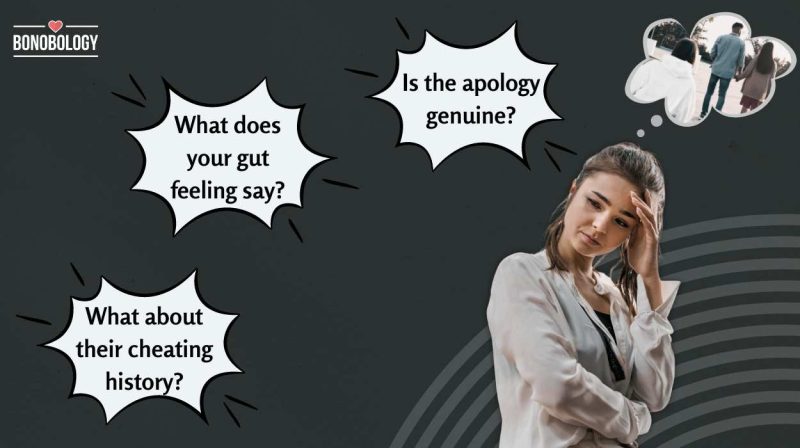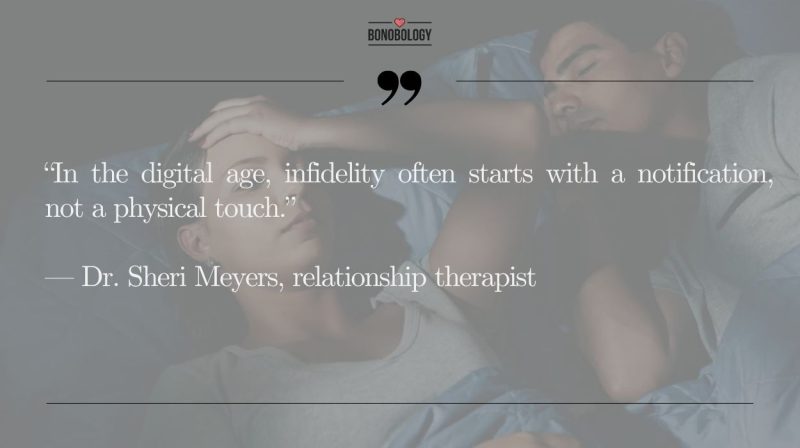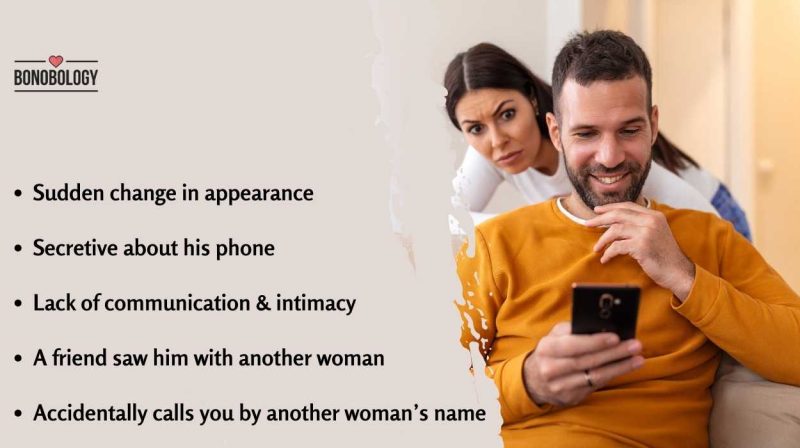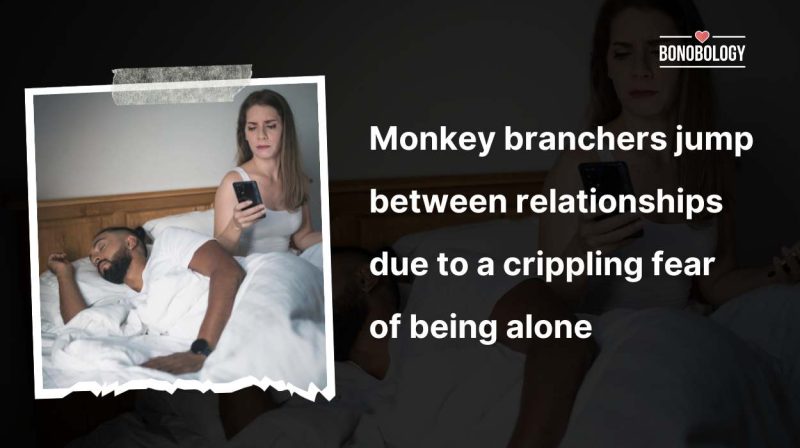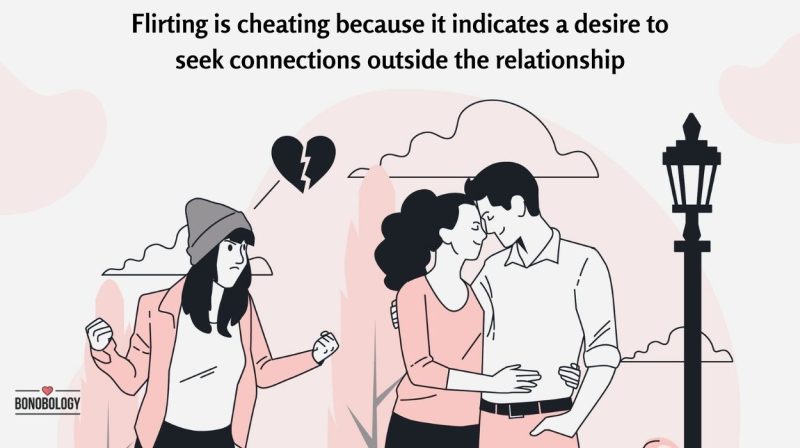Being accused of cheating when you’re innocent can cause deep emotional distress and erode trust. False accusations often stem from insecurity, projection, or past betrayal, and the healthiest way to respond is through calm communication, setting boundaries, offering clarity, and seeking professional help if the pattern continues.
Being accused of cheating when innocent can be a harrowing and confusing experience. Consider Jake and Emily’s story. They have been together for three wonderful years and have shared countless moments of joy, laughter, and love. One evening, Jake comes home to find Emily fuming. She’s convinced he has been unfaithful after seeing a vague social media post from a mutual friend. Despite his protests of innocence, Emily’s accusations grow louder and more insistent, devastating Jake.
The normal reaction to being falsely accused is a mix of shock, anger, and confusion. How could a trusting relationship crumble so quickly over a misunderstanding? How could someone you love and trust think you would betray them? False accusations can severely damage your relationship, creating mistrust and insecurity.
We spoke to counseling psychologist Dhriti Bhavsar (M.Sc, Clinical Psychology), who specializes in relationship, breakup, and LGBTQ counseling, about false accusations meaning, causes and signs of a false accusation, how false accusations destroy relationships, and how to respond when someone accuses you of something you didn’t do.
Why Is Your Partner Making False Accusations – Common Reasons
Table of Contents
Before we get to the why, let’s understand false accusations meaning. It means blaming someone for something they didn’t do. It often stems from misunderstandings, insecurities, or past relationships. These baseless, unfounded claims can hurt feelings, damage trust, and create tension, making it crucial to address them calmly and fairly.
Constant accusations in a relationship may cause permanent damage if handled incorrectly, which is why understanding why your partner is making false accusations is the first step in addressing the issue. When you understand the reason behind such behavior, you’ll be able to make sense of the situation and figure out what needs to be done to avoid such feelings. Read on to know a few common reasons behind such accusations.
Common triggers for false accusations:
- Projection of their insecurities
- Trust issues
- Mismatch of attachment styles
- Influence of others
- Gaslighting
- Acussers’ cognitive distortion
1. They are projecting their insecurities on you
Falsely accusing someone of cheating says a lot more about the accuser than the person they are accusing. If you’re at the receiving end of such allegations, it’s important to understand that this isn’t about you as much as it may be about your partner trying to mask their insecurities.
Projection is a defense mechanism wherein a person experiencing an unpleasant emotion in themselves accuses others around them of harboring a similar emotion because it is painful for them to accept the same within themselves. For example, a jealous partner accusing their spouse of being the jealous one.
Dhriti Bhavsar, counseling psychologist
When a person’s relationship with themselves is damaged, their relationship with everyone else also suffers a similar fate. So when your partner starts making false accusations, it’s usually because:
- They don’t believe they’re worthy of love
- They feel that they are not good enough, which is why they may project these feelings onto the relationship
- They believe that you could easily find someone better than them
- They have themselves engaged in infidelity and accusing you is their way of alleviating their own guilt or fear of being discovered
Related Reading: Jealousy Makes Us Human – Is Jealousy Healthy in a Relationship?
2. Trust issues
If there has been a history of broken trust, even in minor ways, your partner might find it difficult to believe you. This lack of trust can manifest as baseless accusations of cheating, as they might be quick to assume the worst without solid evidence. Dhriti says,
“Your partner may be dealing with trust issues. Hence, they are struggling to have faith in you or give you the benefit of the doubt.”
Dhriti Bhavsar, counseling psychologist
Another reason could be past failed relationships. Past experiences, particularly those involving betrayal or infidelity, can leave lasting scars. If your partner has been cheated on in the past, they might carry those fears into your current relationship. This can lead to a heightened sense of suspicion and a tendency to falsely accuse you of cheating as a defense mechanism to avoid being hurt again.
3. A mismatch of attachment styles
A person’s attachment style says a lot about how they communicate as well as experience love. Attachment styles, developed early in life based on interactions with caregivers, influence how individuals perceive and behave in relationships. Dhriti explains,
“An insecure attachment style due to past trauma from childhood or previous relationships can significantly contribute to misunderstandings and false cheating allegations.”
Dhriti Bhavsar, counseling psychologist
If your partner has an anxious attachment style, they might see indicators of infidelity in:
- Independent actions
- Or need for personal space
On the other hand, individuals with an avoidant attachment style:
- Value their independence
- And might be uncomfortable with too much closeness.
If you have an avoidant attachment style and your partner does not understand your need for space, they might misinterpret your behaviors as signs of secrecy or cheating.
Related Reading: Insecure Attachment Style In Relationships: Causes & How To Overcome
4. Influence of others
If you’re asking yourself, “Why does my girlfriend always accuse me of cheating?” or “Why does my partner constantly accuse me of infidelity?”, then know that sometimes, external influences such as:
- Friends
- Family
- Social media
…can sow seeds of doubt. If someone close to your partner suggests that you might be cheating in the relationship, it can trigger unfounded suspicions. The opinions and experiences of others can have a powerful impact on how your partner views your actions and intentions.
5. Other situational and psychological factors
Here are some other possible, albeit less common, reasons for accusing your partner of cheating without proof:
Manipulation and gaslighting
False accusations of cheating often overlap with gaslighting in relationships, which is a psychological manipulation tactic where one partner denies or distorts facts to make the other question their reality. For example, the accuser might say, “You’ve always been secretive,” even when that’s untrue, to justify their chronic suspicion. Over time, the accused partner begins:
- Doubting their own memory, tone, or actions
- Acting confusion
- Feeling guilt for something they never did
Cognitive distortions in the accuser
Many false accusations are fueled by cognitive distortions or mental filters that twist perception. Common ones include:
- Black-and-white thinking: “If you’re not constantly available, you must be hiding something”
- Catastrophizing: “You smiled at someone, so you’re definitely cheating”
- Mind reading: “I know you’re lying even if you say you’re not”
These distortions arise from insecurity, unresolved trauma, or anxiety, and they make objective communication nearly impossible until addressed through therapy.
“Certain psychological conditions, such as paranoia and related mental health issues can be triggers for false accusations. These conditions can distort your partner’s perception of reality, leading them to believe in infidelity without any real proof.”
Dhriti Bhavsar, counseling psychologist
Psychological Impact of Being Falsely Accused Of Cheating
Before we discuss how to clear your name from false accusations in a romantic relationship, let’s address another vital question: is constantly accusing someone of cheating abuse? Yes, it is. Constantly accusing someone of something they haven’t done is abuse and the psychological effects of false accusations in a relationship can take a major toll on the mental health and well-being of the person at the receiving end of such accusations.
False allegations of cheating can wreak havoc on a romantic relationship, often leading to its eventual downfall. When someone is wrongly accused of infidelity, the foundations of trust and respect can crumble, creating lasting damage. According to Dhriti, below are ways the trauma from being falsely accused of cheating affects the victim’s mental health and destroys relationships:
Psychological impact of being falsely accused of cheating:
- Weakened trust
- Resentment
- Emotional distress
- Low self-esteem
- Anxiety and depression
1. Weakens trust and faith
Trust is the cornerstone of any trusting relationship. Constant accusations in a relationship undermine this trust, making it difficult for partners to believe in each other.
- This erosion of trust weakens the bond and faith that holds the relationship together
- The accused partner may struggle to trust that their partner will have faith in them moving forward
- The accuser might continue to harbor doubts
Related Reading: 11 Golden Rules To Make A Relationship Work
2. Creates animosity and resentment
How is constantly accusing someone of cheating abuse, you may ask? Dhriti says, “False accusations lead to animosity and resentment over not being believed, understood and respected. It also gives rise to misunderstandings, which, if not resolved, will further weaken the relationship.”
The accused partner feels misunderstood and disrespected, leading to intense emotions like anger and frustration. The lack of belief and understanding from their partner fosters deep-seated resentment in a relationship, which can be challenging to overcome. This animosity can permeate every aspect of the relationship, making reconciliation difficult.

3. Causes emotional distress and turmoil
Constantly having to defend yourself against such false allegations leads to significant emotional distress and turmoil. The accused partner experiences a whirlwind of intense emotions, including:
- Frustration
- Anger
- Resentment
- Loneliness
The constant feeling of romantic rejection and not being believed can lead to severe emotional pain, disrupting the relationship harmony.
In a study on alleged false accusations of abuse, researchers found consequences among the accused included depressive symptoms (48%), altered family dynamics (92%), loss of contact with children/family (98%), and impairment in job focus (44%)
4. Threatens self-esteem and self-confidence
False accusations can be a significant threat to self-esteem and self-confidence. If these accusations escalate to the point of gaslighting, the victim may start questioning themselves, wondering if they somehow deserve such treatment. This emotional manipulation:
- And undermine their confidence in their perceptions and actions.
- Can erode their sense of self-worth
- Make them feel guilty
Related Reading: 11 Signs Of Low Self-Esteem Behaviors In A Relationship
5. Leads to anxiety and depression
Another important answer to how is constantly accusing someone of cheating abuse is that it can lead to serious mental health issues. The accused partner might experience:
- Sadness
- Hopelessness
- Helplessness
This can eventually turn into anxiety or depression. The constant emotional stress and turmoil take a toll on their mental well-being, making it difficult to maintain a positive outlook on life and the relationship.
How To Respond When You Are Accused Of Cheating?
Now that we have talked about the reasons and effects of falsely accusing someone of infidelity, let’s discuss how to clear your name from false accusations. Naturally, getting angry at a baseless accusation is probably the go-to response for most people. However, you need to know that it won’t help your case. On the other hand, if you’re completely nonchalant, sipping on your coffee whilst speaking in an earthy villain-esque tone, you’re going to look like a jerk. So, what exactly should you do? Here are some essential steps to take to navigate the situation.
Related Reading: How To Watch Out For The Relationship Red Flags – Expert Tells You
1. Remain calm
The normal reaction to being falsely accused is usually anger. However, the best thing you can do if you’re being accused of cheating but innocent is to control your anger. Getting completely outraged by the accusation will result in:
- One of you storming out
- The conversation not reaching a conclusion
- Making you look guilty
It’ll probably be the hardest thing you’ll have to do, but if you can remain calm, there is a good chance that a meaningful conversation will happen and reach a conclusion as well.
Research showed that third parties often interpret anger from the accused as a cue of guilt even though anger is not a valid indicator of guilt.
2. Don’t turn it around on them
“Oh, I’m the one who’s cheating? What about when you…” Nope, don’t turn it around on your partner and engage in blame-shifting. In your rage-filled impulses, you may bring up things about your partner that anger you, which will probably end up doing the relationship more harm than good. If you become overly defensive and change the topic of the argument, it’ll end up making you look that much more suspicious.
False accusations lead to animosity and resentment, further weaking the relationship.
Dhriti Bhavsar, counseling psychologist
If you’re being accused of cheating when innocent, it’s important to stay calm and try to diffuse the situation first. The issues you have can wait since your partner isn’t in a healthy mental state right now.
3. Understand their reasons and perspective
False accusations often stem from:
- Hurtful past experiences
- Insecurity
- Low self-esteem
- Control issues
Understanding their perspective can help you address the root cause of their suspicions. Dhriti explains, “Remember that this issue is more about your partner than you. Ask for clarity. Ask your partner where the thought of you cheating on them is coming from. Listen to their point of view and offer validation and reassurance.” When you’re trying to deal with false accusations in a relationship, the best thing you can do is put your detective hat on, instead of gearing up to fight. Try to understand:
- Why does your partner feel this way?
- Have they been cheated on in past relationships?
- Do they have insecurities that might be fueling these accusations?
Ask for specific examples or instances where they feel you have acted in a certain way.
Related Reading: 17 Signs You’re With An Emotionally Immature Woman
4. Avoid defensiveness
False accusations often give rise to numerous misunderstandings. The accuser might misinterpret innocent actions as suspicious, while the accused might become defensive. This further weakens the relationship, creating a cycle of doubt and conflict between the couple. So, even when you clear signs of a false accusation, make sure you:
- Acknowledge your partner’s feelings instead of dismissing them
- Validate their emotions
- Reassure them of your commitment to the relationship
- Help your partner address their insecurities
It will make your partner feel that their emotions and concerns are important to you. It will also help both of you work together to build a trusting relationship.

5. Take care of yourself
Your mental health may go for a toss if the accusations continue. It’s important to look after yourself and prioritize your overall well-being. Dhriti recommends:
- Talking to friends and family
- Leaning on your support system
- Making sure you don’t neglect your own needs while trying to resolve the issue
- Engaging in self-care activities
- Maintaining a healthy lifestyle
Taking care of yourself will help you heal and move on.
Related Reading: 20 Myths And Facts About Cheating In A Marriage
6. Seek professional help
“If the accusations persist, consider couples therapy”, recommends Dhriti. A therapist can:
- Help mediate the conversation
- Provide strategies to rebuild trust
- Provide a safe and neutral space for you and your partner to address the underlying issues
- Help improve the communication gap or problem
Dealing with false accusations can be challenging, and professional guidance can make a significant difference.
7. Reflect on the relationship
According to Dhriti, the partner at the receiving end of the accusations should “take a step back and observe the relationship dynamics” that led to such a situation before making any decision. She recommends watching out for a pattern of abuse — see whether:
- This is a repetitive pattern
- Your partner has disproportionate emotional reactions
- They’re trying to make you feel guilty
- It is their way to control and shame you
We agree. You must take a step back and reflect on the relationship with a calm head. Are these accusations a one-time incident, or is there a pattern of mistrust? Understanding your relationship dynamics can help you decide how to proceed.
8. Set boundaries
Being accused of cheating constantly can be exhausting and damaging, which is why Dhriti recommends “establishing healthy boundaries” to protect your emotional well-being. Talk to your partner about:
- Privacy
- Transparency
- Personal space
- Communication
Clearly express what’s acceptable and what’s not. Tell them that there will be consequences if these boundaries are violated. Let your partner know that while you’re willing to discuss their concerns, constant baseless accusations are unacceptable.

9. Maintain open communication
If you are being accused of cheating when innocent, express your feelings and clarify your stance. Explain calmly that you haven’t cheated. Open communication is key to resolving misunderstandings in a relationship. Throughout the process, strive to:
- Keep communication lines with your partner open
- Use assertive communication
- Reassure them consistently
- Encourage them to seek professional help, if needed
Dhriti says, “Encourage your partner to use ‘I’ statements—”I felt … when you did …”, instead of “You did …. to me”. This shifts the focus to the emotion rather than the accusation. It encourages the victim to focus on and express how they feel instead of engaging in a blame game with their partner.”
However, she warns, “It is not your sole responsibility to clear all misunderstandings; it’s a shared effort. Know the difference between reassurance and justification. If you haven’t done anything wrong, resist the urge to over-justify your actions.”
10. If you feel suffocated, walk away
Being falsely accused of cheating every other day can be stressful and suffocating. If your partner starts keeping tabs on you like you’re a toddler –
- Constant phone calls
- Asking you about your whereabouts and who you’re meeting
- Going through your phone and emails
- Stalking your social media
…then you might want to reconsider your relationship. If your partner continues to falsely accuse you despite your best efforts, it might be time to walk away. Constantly accusing someone of cheating is a form of emotional abuse.
The psychological effects of false accusations in a relationship include extreme trust issues that are hard to recover from. A relationship is supposed to help you become the best version of yourself and make you happy. If it’s making you lie about who you’re hanging out with, then it’s an unhealthy relationship or dynamic to be in. Your well-being should always come first.
Related Reading: 19 Examples Of Healthy Boundaries In Relationships
11. Provide evidence and clear your name
Providing evidence to support your innocence is crucial to clear your name from false accusations. If there is evidence that the accusation is false, present it to your partner. This can help dispel any doubts or concerns that they may have and strengthen your case. This might include:
- Sharing your whereabouts
- Showing messages
- Involving mutual friends or family members who can vouch for you
While it might feel invasive, sometimes concrete proof is necessary to clear your name from false accusations. Your reputation mustn’t be unfairly tarnished. “Stick to your truth and have faith in yourself. Validate yourself and your experience,” says Dhriti.
How To Strengthen Trust And Prevent False Accusations
Being falsely accused once can shake your confidence, but when it happens repeatedly, it signals a deeper problem: a lack of emotional safety and trust. The good news is that couples can rebuild this safety through consistent, transparent actions.
What builds trust:
- Transparent communication
- Clear expectations
- Consistency
- Vulnerability
- Professional guidance
- Regular check-ins
1. Practice transparent communication
Openness creates security. Instead of over-explaining your every move, agree on what transparency looks like for both of you.
That might mean:
- Checking in once a day if you’re apart
- Being honest about plans without fear of interrogation
- Keeping passwords private but behavior open
Transparency isn’t about control; it’s about removing the space where assumptions breed.
Related Reading: 19+ Most Commonly Used Cheating Apps For iPhone
2. Set clear expectations and boundaries
Accusations often arise when boundaries are vague. Sit down and discuss what loyalty, privacy, and respect mean to each of you.
For instance:
- Is it okay to have lunch with an ex-colleague?
- How often do you check in during work trips?
- What kinds of online interactions feel disrespectful?
These conversations may feel awkward, but they prevent misunderstandings later. Boundaries, when mutually agreed upon, act as a shared map, not a cage.
3. Build trust through consistency
Trust isn’t built in occasional romantic gestures; it’s built in patterns. Keep promises, show up on time, and mean what you say. It builds trust when small actions align with words, like:
- Returning calls
- Honoring commitments
- Showing emotional presence
Even after being accused falsely, consistency in your words and actions helps your partner recalibrate their perception of you.
Related Reading: Lying By Omission And Its Consequences On Relationships
4. Make vulnerability a habit
False accusations often come from fear of:
- Loss
- Rejection
- Or being hurt again
The antidote is emotional vulnerability. Take turns sharing your fears or insecurities without judgment. Such openness helps transform suspicion into empathy. Vulnerability builds intimacy and reminds both partners they’re on the same side.
5. Seek professional guidance early
You don’t need to wait for a crisis to seek therapy. Couples therapy helps partners understand each other’s emotional triggers, communication gaps, and attachment styles before they spiral into accusations or resentment. A neutral therapist can also teach emotional regulation techniques so neither partner resorts to blame or defensiveness when anxious thoughts arise.

6. Revisit trust as an ongoing practice
Relationships evolve, and so should your trust agreements. Every few months, reflect on questions like:
- “Do I still feel emotionally safe with you?”
- “Are there habits that are starting to make me uneasy?”
- “What helps me feel more connected and secure?”
Proactive check-ins transform potential accusations into healthy conversations. They turn emotional tension into teamwork.
Frequently Asked Questions
If your partner keeps accusing you of cheating, it often means that they’re projecting their insecurities onto you. They may be misunderstanding your actions, but largely it’s due to trust issues. They may even have possessive traits and try to control you. In extreme cases, they could be the ones cheating or it could be their way of emotionally abusing you.
If you are falsely accused of cheating, try to remain calm. Look your partner in the eye and tell them you’ve never been unfaithful. Provide evidence – sharing your whereabouts, showing messages, or even involving mutual friends or family members who can vouch for you – to support your innocence and dispel any doubts that they may have. Since you’re telling the truth, there won’t be any inconsistencies in your story anyway. However, despite your genuine efforts, it might not be enough since the insecurities of your partner won’t go away without a lot of work.
Cheaters may try to turn the tables on you, shift the blame, and gaslight you into questioning your own reality. They’ll downplay the significance of the situation and try to get away scot-free. In abusive situations, they may even get physically violent or threaten to harm you.
The only way to be sure if someone is guilty of cheating is if you have proof, or if they accept doing so themselves. Speculation, guesswork, and trying to draw conclusions from their reactions leave too much room for error.
Key Pointers
- False accusations of cheating often stem from the accuser’s insecurities, past experiences, or psychological issues
- Being accused of cheating when innocent can create significant emotional turmoil, including anger, resentment, and self-doubt, often causing long-lasting harm to the mental and emotional health of both parties involved
- Remain calm, empathetic, and avoid defensive or retaliatory behavior when falsely accused to facilitate constructive communication and understanding
- Professional counseling can be beneficial in addressing underlying issues and rebuilding trust, while establishing clear boundaries and maintaining open communication are essential for mutual respect and emotional safety.
- If the accusations take the form of emotional abuse, prioritize personal well-being and consider leaving the relationship
Final Thoughts
Being accused of cheating when innocent is a traumatic experience that can have lasting psychological effects on a relationship. False accusations can destroy trust, affect intimacy, and make you feel intense emotions such as anger, hurt, and resentment. If you find yourself in a similar situation, remember that you are not alone in this struggle. Many couples have faced such challenges and emerged stronger than ever. With the right approach, you can defend yourself against these damaging claims and find a path to healing and resolution.
Your contribution does not constitute a charitable donation. It will allow Bonobology to continue bringing you new and up-to-date information in our pursuit of helping anyone in the world to learn how to do anything.



